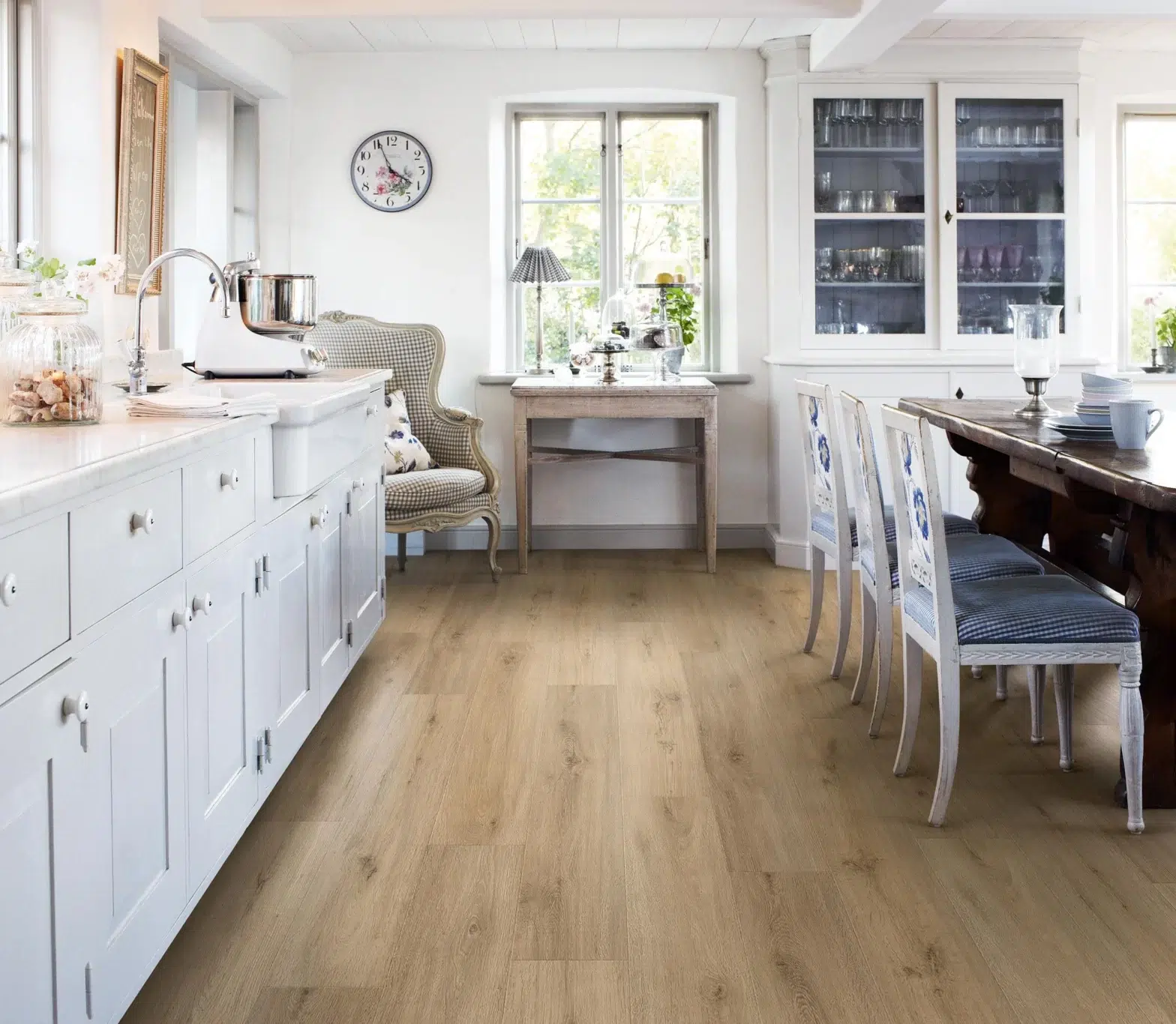When it comes to flooring options, laminate and vinyl plank flooring have become increasingly popular choices due to their durability, affordability, and versatility. However, there are key differences between the two materials that are often misunderstood. In this blog, we will shed light on the misconceptions surrounding laminate flooring, emphasize the benefits of its waterproof technology. We will compare laminate to vinyl plank flooring, focusing on issues like plastic content, VOC emissions, scratching, and fading.
Laminate Flooring: Not Plastic, Surprisingly Sustainable
One common misconception about laminate flooring is that it is made of plastic. In reality, laminate flooring is constructed using multiple layers of wood-based materials, including a high-density fiberboard (HDF) core. A decorative layer, and a wear-resistant top layer. The top layer is typically made of a special melamine resin, which provides protection against wear and tear.
Moreover, our laminate flooring manufacturers have taken a sustainable approach by using 100% recycled wood fibers in their HDF core. This eco-friendly characteristic sets laminate flooring apart from vinyl plank flooring, which is plastic, often derived from non-renewable fossil fuels.
VOC Emissions in Vinyl Plank Flooring: A Concern for Indoor Air Quality
One of the drawbacks of vinyl plank flooring is the potential release of volatile organic compounds (VOCs) into the air. VOCs are chemicals that can evaporate from certain materials, contributing to indoor air pollution and affecting indoor air quality. Some vinyl products may contain phthalates and other harmful chemicals that can be released over time, posing health risks to occupants.
On the other hand, laminate flooring has made significant strides in reducing VOC emissions by using natural products and eco-friendly production processes. It is an excellent choice for those seeking a flooring option with minimal impact on indoor air quality and overall well-being.
Waterproof Technology: A Game-Changer for Laminate Flooring
One of the most notable advancements in laminate flooring technology is the development of 100% waterproof surface and joint systems. Unlike some laminate flooring which are susceptible to water damage at the joints. Our laminate products offer a 100% waterproof surface and joint system.
This breakthrough has enabled homeowners to install laminate flooring in areas prone to moisture. Such as kitchens, bathrooms and basements with confidence. Vinyl plank flooring is butt jointed or uses an inferior joint which is not waterproof. Making it susceptible to water-related issues such as; adhesive failure, subfloor damage, and the potential growth of mold on the subfloor when exposed to excessive moisture
Scratch Resistance and Fading: Laminate Takes the Lead
Laminate flooring boasts exceptional scratch resistance due to its durable top layer. This protects the floor from daily wear and tear caused by foot traffic, furniture, and pets. Even in high-traffic areas, laminate flooring can maintain its appearance for many years.
Conversely, vinyl plank flooring is susceptible to scratches, especially in areas with heavy use. Additionally, over time, vinyl planks may experience high fading when exposed to direct sunlight, which can compromise the aesthetics of the floor.
In summary, laminate flooring offers numerous advantages over vinyl plank flooring. Contrary to the misconception that laminate is plastic, it is an environmentally friendly option made from wood-based materials. Its low VOC emissions make it a safer choice for indoor air quality.
The incorporation of 100% waterproof joint technology makes laminate flooring an excellent option for areas exposed to moisture, where vinyl plank flooring may fall short. Laminate’s scratch resistance and fading resilience ensure it can withstand the test of time, outperforming vinyl in durability and aesthetics.
When considering flooring options for your home or commercial space, it is essential to weigh the benefits of each material carefully. Laminate flooring, with its sustainable composition, waterproof capabilities, and superior durability, presents a compelling choice that goes beyond the misconceptions often associated with this remarkable flooring solution.


